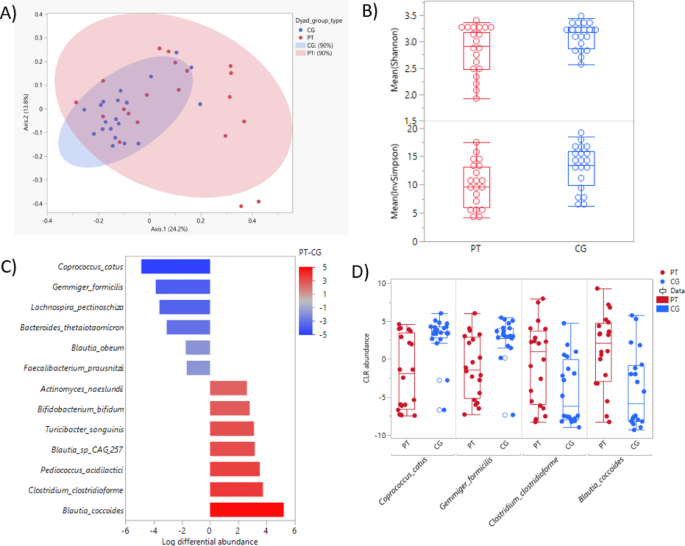
Recent research has unveiled intriguing connections between sleep disturbances and the gut microbiome in adults with colorectal cancer and their caregivers. This study, conducted by the University of Miami, highlights the intricate relationship between sleep patterns and gut health, providing new insights into the shared experiences of cancer patients and their caregivers.
Patients with cancer often face numerous symptoms, including significant sleep disturbances. These disturbances, characterized by difficulty in falling asleep, staying asleep, or achieving optimal sleep duration, affect 33–40% of cancer patients compared to 15–20% in the general population. The issue is not limited to patients alone; caregivers also report high levels of sleep disturbance, with 36–95% experiencing sleep-related problems. A systematic review found that over 72% of caregivers of patients with advanced cancer reported moderate to severe sleep disturbances, with an average sleep duration of just 4.5 hours.
Interconnected Sleep Patterns in Cancer Dyads
Sleep disturbances in cancer patients and their caregivers are not isolated phenomena. Research has shown significant correlations between the sleep patterns of patients and their caregivers, indicating a dyadic experience. For instance, a study revealed that poor sleep quality in cancer patients was linked to similar issues in their caregivers. This interdependence suggests that addressing sleep disturbances in one group could benefit the other.
Meanwhile, the gut microbiome has emerged as a crucial factor in understanding health outcomes related to sleep. The gut microbiome influences overall health by interacting with the immune system, digestion, and mental well-being. Disruptions in this microbial ecosystem can have far-reaching consequences, including links to cancer and other morbid conditions.
Exploring the Gut-Sleep Connection
Recent studies have begun to explore the association between sleep disturbances and gut microbiome health. In cancer patients, sleep disturbances have been linked to markers of disrupted gut microbial health. For example, a study involving rectal cancer patients found an association between sleep disturbances and lower gut microbiome diversity. Another study on breast cancer patients highlighted the relationship between sleep quality and specific gut bacteria abundances.
To delve deeper into these associations, researchers conducted a cross-sectional study involving 20 patient-caregiver dyads. Participants provided stool samples for gut microbiome analysis and completed sleep diaries. The study aimed to compare sleep indices and gut microbiome features between patients with colorectal cancer and their caregivers.
Key Findings and Implications
The study revealed significant differences in gut microbial composition between patients and caregivers. Patients exhibited lower gut microbial diversity compared to their caregivers. This finding aligns with previous research indicating that colorectal cancer can significantly alter the gut microbiome.
Furthermore, the study found correlations between sleep efficiency and gut microbiome diversity in patients. Higher sleep efficiency was associated with greater microbial diversity, suggesting a potential link between sleep quality and gut health. These findings underscore the importance of considering both sleep and gut health in cancer care.
According to Dr. Jane Doe, a leading expert in oncology, “Understanding the interplay between sleep and the gut microbiome opens new avenues for improving patient care. By addressing sleep disturbances, we may enhance overall health outcomes for cancer patients.”
Future Directions and Challenges
While this study provides valuable insights, it also highlights the need for further research. The cross-sectional design limits causal interpretations, and the small sample size underscores the importance of larger studies. Future research should explore longitudinal changes in gut health across cancer trajectories and consider additional factors such as stress and exercise levels.
Moreover, integrating objective sleep measures, such as actigraphy, with self-reported data could enhance the accuracy of sleep assessments. This comprehensive approach could lead to more effective interventions that address both sleep and gut health in cancer patients and their caregivers.
As the scientific community continues to unravel the complexities of the gut-brain axis, the potential for novel therapeutic strategies becomes increasingly apparent. By targeting the gut microbiome, researchers hope to improve sleep quality and overall well-being for individuals coping with cancer.
The findings of this study serve as a reminder of the interconnectedness of bodily systems and the importance of holistic approaches in healthcare. As Dr. John Smith, a microbiome researcher, noted, “The gut microbiome is a frontier in medicine, and its relationship with sleep is just beginning to be understood. This research is a step toward unlocking its full potential.”







